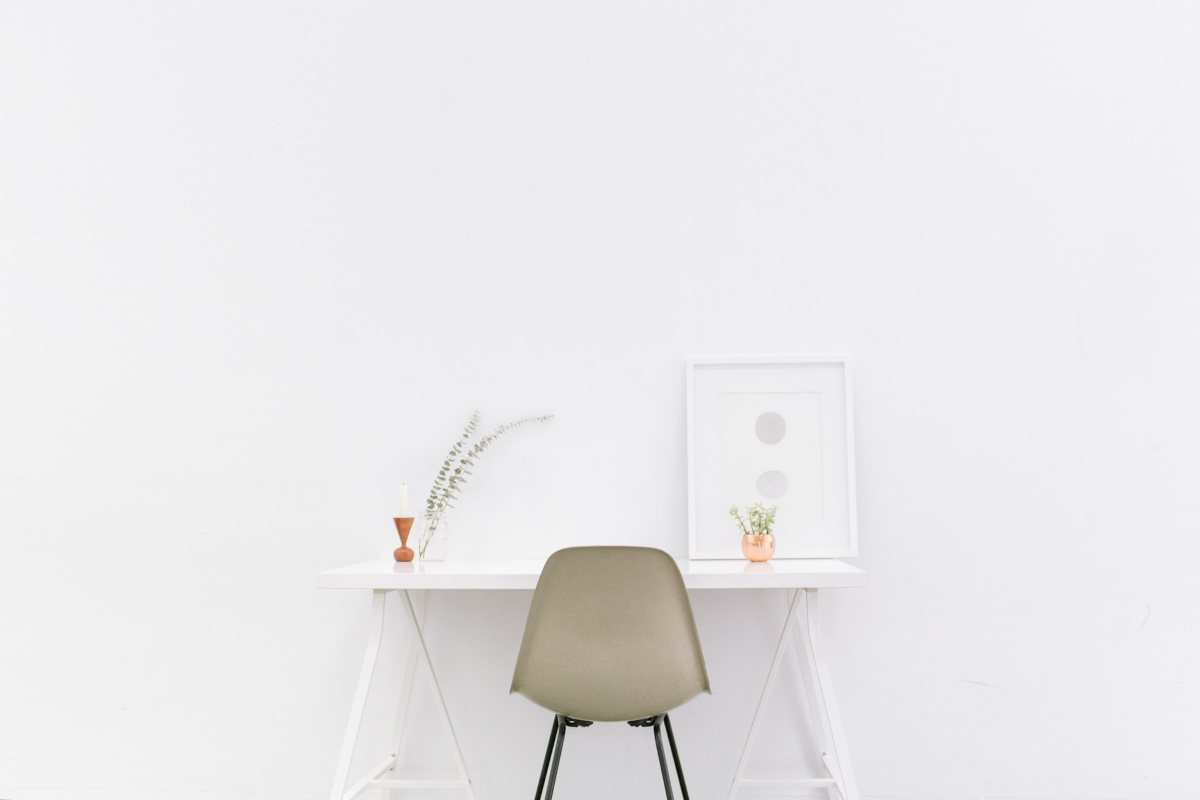Today, almost 8 billion people walk on this planet. Each of us contributes to the fuss in this giant hive in our own way. But, all this mess inevitably makes its way to our heads too.
In recent years, there’s been an increasing urge to go back to our roots and go back to living peaceful, minimalist lives.
If you feel that urge but are not sure where exactly to start, read this beginners guide to minimalist living.
A Beginners Guide To Minimalist Living

1# Connect minimalism to the urge within yourself
Shifting the overcrowded lifestyle to simplicity will not be easy. You need to have the drive and the fortitude to go through challenging times. That is possible, but only if you can find a way to relate your new minimalist habits to a fundamental aspect of who you are.
These values may be anything. Maybe you want to simplify the mess in your head or cut some financial burden off. Perhaps you desire to give back to nature more and live a more sustainable life. Whatever it is, find your inner drive and embrace it.
Check out other perspectives to find your own
If you are having problems finding your “why,” you may find it helpful to think about some statements about living a simple life or read a few books on the subject.
They will provide you with a framework for the remainder of your trip as well as an understanding of what it is possible to accomplish via the practice of minimalism.
2# Find a rational way to cope with spending traps
Enemy number one for the minimalist lifestyle in today’s society is a culture of spending. Some people and ads urge you to spend wherever you go (or even if you don’t go anywhere and decide to stay warm on your couch).
”Benign” scrolling through social media often ends up with you buying something you didn’t even know existed, something you definitely don’t need.
How to fight it?
Spending money on the things you don’t need is an irrational act. The best strategy for fighting irrationality is applying little cold rationality. In the situations when you get the urge to spend, you can apply these three steps:
- Figure out which emotion made you desire things you want to buy. If you become able to put your finger on it on an emotional level, you’ll be able to understand it better and prevent it from happening in the future.
- Put on paper the amount of money you’ll spend on it and compare it to your hourly income. Seeing on paper how many hours you worked for it will be a cold shower that helps you see the object’s true value.
- Think about how buying it will improve your life. If you don’t see your life significantly better because of it – leave it be.
3# Decluttering – a part of every beginners guide to minimalist living
If you engaged in some previous search on the topic, you’ve probably seen this as a common ground. Decluttering is an excellent way to start your journey to a minimalist life.
Getting rid of the clutter in your home will give you some rational and emotional clarity that you’ll need on this path to simplicity. Also, your overall productivity will significantly increase, especially if you work from home.
Yes, it can be tricky, especially if you’re a hoarder by nature. But, if you take it step by step, you will find great relief at the end of the road. If you are having trouble parting from your belongings, the good thing is to consider donating some of them. The altruistic part of this act will give you more satisfaction and pride, making it easier for you to do it.
4# Start big but don’t forget about the details
Decluttering is one of the most crucial parts of the beginners guide to minimalist living. When decluttering, it’s essential first to eliminate more significant pieces. That way, you’ll see ”the end result” before and more clearly. This will give you immediate satisfaction and motivation to move forward. But, once you get rid of the big stuff, it’s essential not to forget about smaller things.
Getting everything that’s been collected under the rug over the years, literally and figuratively, is important if you want to embrace the minimalist lifestyle truly.
Even things that don’t seem important at first glance, like getting rid of junk on your phone, can significantly impact your durability in this lifestyle. Keeping your data clean and tidy will help you mentally prepare for all the challenges ahead of you.
5# Starting from a blank page is the best approach
If you have the opportunity to have a blank page (or infamous ”tabula rasa” as Aristotle called it), it will significantly help this whole process. Beginning a new life after a move can be just the amount of symbolism that will help you begin minimalism living and stay consistent with it.
In fact, starting from a blank slate can begin with decorating your home after a move. Pro movers often suggest planning the decorating ahead if you want to shift to the minimalist lifestyle. That way, you can take care of excess belongings by renting storage.
Why is it important to practice minimalism?
Besides having a minimalistic kitchen up to the latest trends, minimalism will have major positive effects on your household. You’ll no longer have to go for a treasure hunt whenever you want to find your remote.
You’ll feel more unrestrained and at peace in a place that doesn’t strangle you with its clutter. On the other hand, you’ll spend less money on maintenance and less on buying the stuff you don’t need.
Bottom Line
As you can see, living a minimalist life can benefit you on personal, social, and financial levels. So, if you have thought about it for a while, make sure first to try these tips mentioned in this beginners guide to minimalist living. Take one step at a time and contribute to making a world at least a bit less messy place.
Read Also:
- How To Live A More Sustainable Life
- Three-Quarter Life Crisis Is the New Midlife Crisis
- 5 Top Sustainable Living Tips
Author: Sophia Perry











